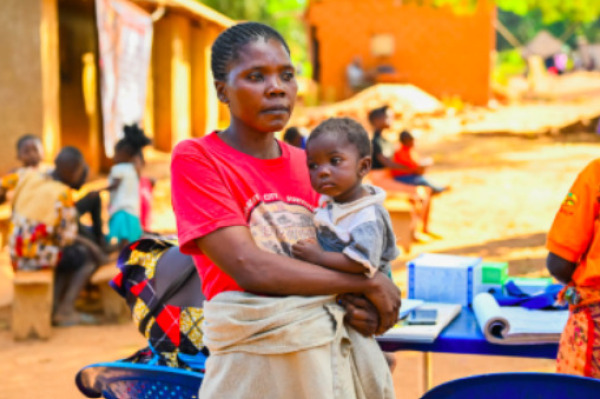
“Mpox is not the new COVID,” a World Health Organization official said about a recent outbreak of the virus centered around the Democratic Republic of Congo (DRC). Yet, as cases have been reported not only in a dozen African countries but already as far as Sweden and Thailand, he added that “we can and must tackle mpox together, across regions and continents.”
While the first reported cases beyond Africa have made international headlines and for many brought up memories of the recent pandemic with lockdowns affecting nations across the world, Christian relief organization World Vision has remained focused the situation in the DRC where the virus is affecting already vulnerable populations.
They emphasize the particularly critical situation of children in poorer nations, where the impacts of the virus are being felt most acutely. In the Central African country alone, more than a third of the 7,851 reported cases—about 39%—are among children. And of the 384 reported deaths due to mpox so far this year, 240 (or 62%) were children under 5 years old, according to recent statistics.
World Vision has described the risks facing children in the DRC as “grave,” underlining the “pressing need” for immediate and coordinated action. The organization is advocating for a multifaceted response that includes the rapid distribution of vaccines, as well as the provision of clean water, improved sanitation, and enhanced hygiene facilities. These measures are considered critical to preventing further deaths and containing the spread of the virus.
Aline Napon, the National Director of World Vision DR Congo, drew attention to the heightened vulnerability of children, especially in countries that are already affected by other crises. “Children are particularly vulnerable to mpox, especially in low and middle-income countries, including those suffering humanitarian crises and where health and social services are weak or non-existent,” Napon emphasized.
She highlighted the specific risks faced by children living in precarious conditions. “Children are especially at risk where they are living in refugee camps, overcrowded urban settlements, and where malnutrition, a lack of clean water and sanitation, and poor health services exist,” Napon said. These environments, already fraught with challenges, provide a fertile ground for the virus to spread and for its effects to be devastating.
Napon is urging the international community to respond swiftly and decisively. She calls for the rollout of widespread vaccination programs, alongside public education initiatives aimed at informing communities about the virus and how to prevent its spread. Additionally, she stresses the importance of scaling up treatment efforts for those who are already infected.
“World Vision’s experience in tackling Ebola and COVID in humanitarian situations tells us that there is no time to waste,” Napon warned, drawing on the organization’s past experiences with managing severe health crises in similar contexts.
“People in DR Congo and other impacted countries need immediate free treatment for mpox. There must also be an immediate immunization program set up to prevent further infection and mortality. We cannot stand by while children die from this deadly but preventable disease,” she stressed.
Global solidarity in addressing public health emergencies is critical, especially those that disproportionately affect the most vulnerable populations. However, the response should not only addresses the immediate health crisis but also tackle the underlying conditions that make these communities so vulnerable to outbreaks in the first place.
As the world grapples with a new virus, the lessons learned from previous epidemics like Ebola and COVID-19 are more relevant than ever. Rapid response, coordinated efforts, and a focus on the most vulnerable populations are essential to preventing another widespread global health crisis, World Vision says.




